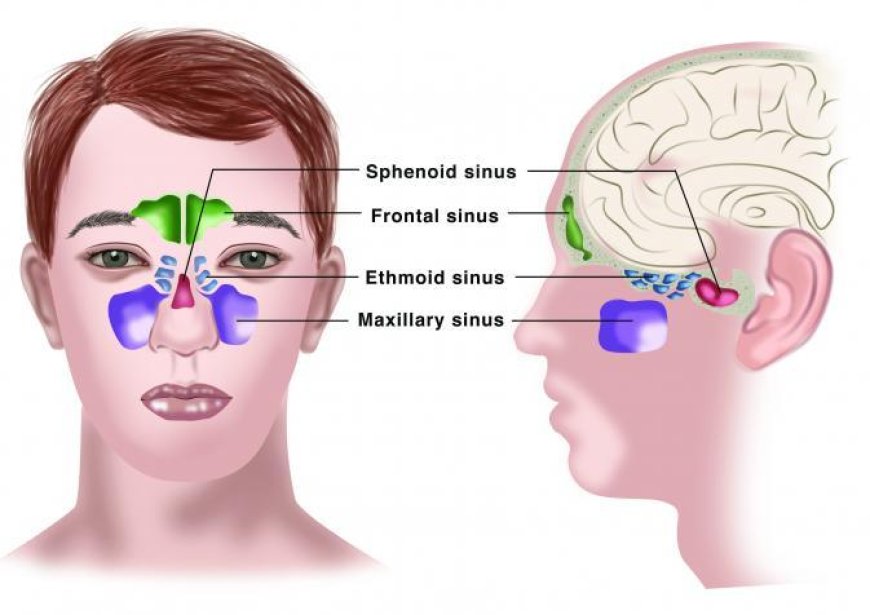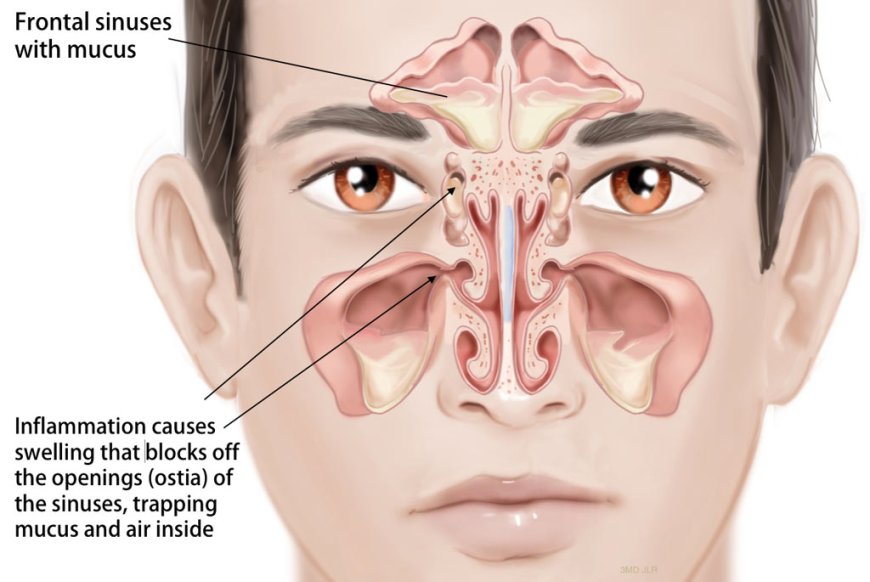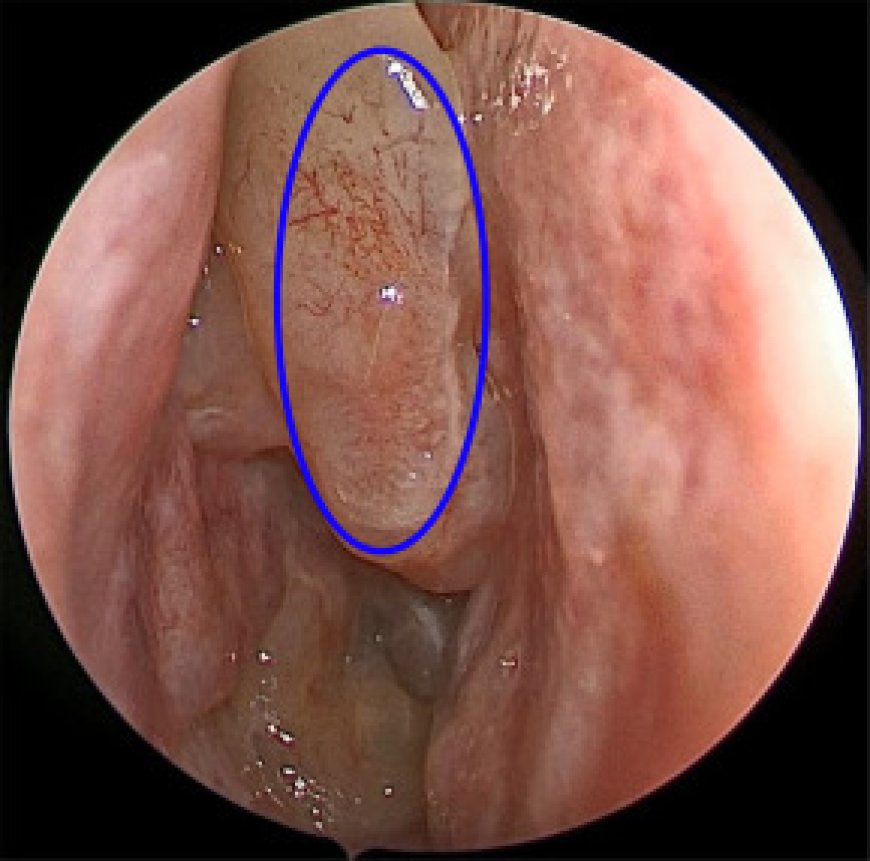"How to Overcome Chronic Sinusitis Naturally"
"Suffering from chronic sinusitis? Get relief with our 10 expert-approved tips and natural remedies. Say goodbye to sinus pain for good!"
If you've ever suffered from a cold, then you're probably familiar with the feeling of a stuffy nose. It's a common symptom that typically goes away within a few days. However, for some people, that stuffy nose never seems to go away. If you're experiencing prolonged congestion, pain and pressure in your face, or nasal discharge, you may be dealing with chronic sinusitis.
In this article, we'll take a deep dive into chronic sinusitis, discussing what causes it, the symptoms, and available treatments. We'll also explore the different types of chronic sinusitis, and how to manage the condition.
Chronic sinusitis is a condition where the sinuses become inflamed and swollen for an extended period, usually lasting for 12 weeks or more. Sinuses are small, air-filled cavities located in the bones around the nose and eyes. Their primary function is to produce mucus, which moisturizes the nasal passages and helps to trap pollutants and bacteria.
When the sinuses become inflamed and swollen, mucus production is increased, leading to a build-up of mucus that can't drain properly. This leads to symptoms such as congestion, facial pressure, and pain, as well as a feeling of fullness in the face.
Types of Chronic Sinusitis
There are several types of chronic sinusitis, including:
- Chronic maxillary sinusitis: This type of sinusitis affects the maxillary sinuses, which are located in the cheekbones.
- Chronic frontal sinusitis: This type of sinusitis affects the frontal sinuses, which are located in the forehead.
- Chronic ethmoid sinusitis: This type of sinusitis affects the ethmoid sinuses, which are located between the eyes.
- Chronic sphenoid sinusitis: This type of sinusitis affects the sphenoid sinuses, which are located at the back of the nasal cavity.
Causes of Chronic Sinusitis
There are several causes of chronic sinusitis, including:
- Nasal polyps: These are small growths in the nasal passages that can block the sinuses and lead to chronic sinusitis.
- Allergies: Allergic reactions can cause inflammation in the sinuses, leading to chronic sinusitis.
- Deviated septum: A deviated septum is a condition where the thin wall between the nasal passages is displaced to one side. This can cause blockages in the sinuses, leading to chronic sinusitis.
- Infections: Viral or bacterial infections can cause acute sinusitis, which can progress to chronic sinusitis if not treated properly.
- Environmental irritants: Exposure to pollutants, smoke, or other irritants can lead to chronic sinusitis.
Symptoms of Chronic Sinusitis
The symptoms of chronic sinusitis include:
- Facial pain and pressure: This is the most common symptom of chronic sinusitis. It typically affects the forehead, cheeks, and eyes.
- Congestion: Chronic sinusitis can cause a feeling of fullness in the face and a blocked nose.
- Postnasal drip: Mucus that builds up in the sinuses can drain down the back of the throat, leading to a sore throat and cough.
- Fatigue: Chronic sinusitis can cause fatigue due to the body's constant effort to fight off inflammation.
- Reduced sense of smell and taste: Chronic sinusitis can affect your ability to smell and taste.
Diagnosis of Chronic Sinusitis
To diagnose chronic sinusitis, your doctor will perform a physical exam and review your medical history. They may also recommend imaging tests such as a CT scan or MRI to get a better view of the sin
Treatment of Chronic Sinusitis
The treatment of chronic sinusitis depends on the severity of the condition and the underlying cause. Some common treatment options include:
- Nasal corticosteroids: These medications are available in the form of nasal sprays or drops and help reduce inflammation in the sinuses.
- Decongestants: Over-the-counter decongestants can help relieve congestion and reduce swelling in the sinuses.
- Antibiotics: If chronic sinusitis is caused by a bacterial infection, your doctor may prescribe antibiotics to clear the infection.
- Immunotherapy: Immunotherapy is a treatment option for chronic sinusitis caused by allergies. It involves exposing the body to small amounts of the allergen over time, helping to build up tolerance.
- Surgery: In severe cases, surgery may be necessary to remove polyps, correct a deviated septum, or improve sinus drainage.
Managing Chronic Sinusitis
In addition to medical treatment, there are several things you can do at home to manage chronic sinusitis, including:
- Nasal irrigation: This involves flushing out the sinuses with a saline solution, which can help reduce inflammation and relieve congestion.
- Steam inhalation: Breathing in steam can help reduce inflammation in the sinuses and relieve congestion.
- Avoiding irritants: Try to avoid exposure to irritants such as smoke, dust, and pollutants, which can aggravate the sinuses.
- Drinking plenty of fluids: Staying hydrated can help thin out mucus and make it easier to drain from the sinuses.
- Using a humidifier: Adding moisture to the air can help reduce dryness in the sinuses and relieve congestion.
When to See a Doctor
If you've been experiencing symptoms of chronic sinusitis for more than 12 weeks, it's important to see a doctor. They can diagnose the condition and recommend appropriate treatment options. You should also seek medical attention if you experience any of the following symptoms:
Plan a meeting with your doctor if:
· You've had sinusitis various times, and the condition doesn't answer
Treatment.
· You have sinusitis symptoms that last over 10 days
Your side effects don't further develop after you see your doctor
· See a specialist right away on the off chance that you have the
Accompanying symptoms which could show a serious infection:
Fever
Swelling or redness around your eyes
Extreme headache
Brow expanding
Disarray
Double vision or other vision changes
Solid neck
Risk factors
You're at increased risk of getting chronic sinusitis if you have:
· A deviated nasal septum
· Nasal polyps
· Asthma
· Aspirin sensitivity
· A dental infection
· A fungal infection
· Tumors
· An immune system disorder such as HIV/AIDS or cystic fibrosis
· Hay fever or another allergic condition
· Regular exposure to pollutants such as cigarette smoke
Usually depends on the underlying cause. In many cases, a combination of treatments may be necessary to manage the condition effectively. Some common treatment options include:
- Nasal irrigation: This involves flushing out the sinuses with a saline solution to help relieve congestion and reduce inflammation.
- Nasal corticosteroids: These are medications that help reduce inflammation in the sinuses and nasal passages.
- Antibiotics: If the chronic sinusitis is caused by a bacterial infection, antibiotics may be necessary to clear up the infection.
- Immunotherapy: This involves receiving allergy shots or taking medication to help reduce the body's reaction to allergens.
- Surgery: In severe cases of chronic sinusitis, surgery may be necessary to remove blockages or repair structural issues in the sinuses.
Prevention of Chronic Sinusitis
There are several things you can do to help prevent chronic sinusitis, including:
- Avoiding exposure to pollutants, smoke, and other irritants that can inflame the sinuses.
- Practicing good hygiene, such as washing your hands regularly and avoiding touching your face.
- Managing allergies effectively, such as taking antihistamines or receiving allergy shots.
- Staying hydrated by drinking plenty of water and other fluids.
Lifestyle Changes to Manage Chronic Sinusitis
In addition to medical treatment, there are several lifestyle changes you can make to help manage chronic sinusitis, including:
- Using a humidifier: Adding moisture to the air can help reduce inflammation and relieve congestion.
- Avoiding triggers: If you know that certain allergens or irritants trigger your chronic sinusitis, try to avoid them.
- Eating a healthy diet: A diet high in antioxidants and anti-inflammatory foods can help reduce inflammation in the sinuses.
- Getting enough rest: Getting enough rest can help reduce fatigue and support your body's ability to fight inflammation.
Conclusion
Chronic sinusitis can be a frustrating and debilitating condition. However, with proper treatment and lifestyle changes, it's possible to manage the symptoms effectively and improve your quality of life. If you're experiencing prolonged congestion, facial pain, or other symptoms of chronic sinusitis, it's essential to seek medical attention promptly. Your doctor can help determine the underlying cause
What's Your Reaction?












































